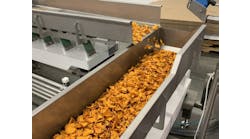MapChange 2010, a study, conducted by Climate Counts as part of an annual climate change study based on 22 criteria and Angus Reid Public Opinion, of 90 companies in North America, and perception measurements of these companies’ actions by 2,000 American consumers, reveals there is still a gap between real and perceived sustainability action by top North American brands.
MapChange 2010 showed a disparity between actual sustainability activity of brands, and consumer perception of sustainable activity of those brands. In the food segment, General Mills, Kraft and Kellogg all have perception scores of 79 or above, but actual scores of 58 or below. Meanwhile, SAB Miller has a lowly perception score of 14, but an actual score of 44, Unilever has a perception score of 32 and an actual score of 79, and Groupe Danone has a perception score of 33 and an actual score of 64.
Compared with the inaugural MapChange study in 2008, most brands had a higher perceived score among consumers, due to factors such as increased green brand communication, increasing consumer-facing “green” products, and heightened media attention in sustainable brands, according to Climate Counts.
Latest from Plant Operations and Engineering
Latest from Plant Operations and Engineering

